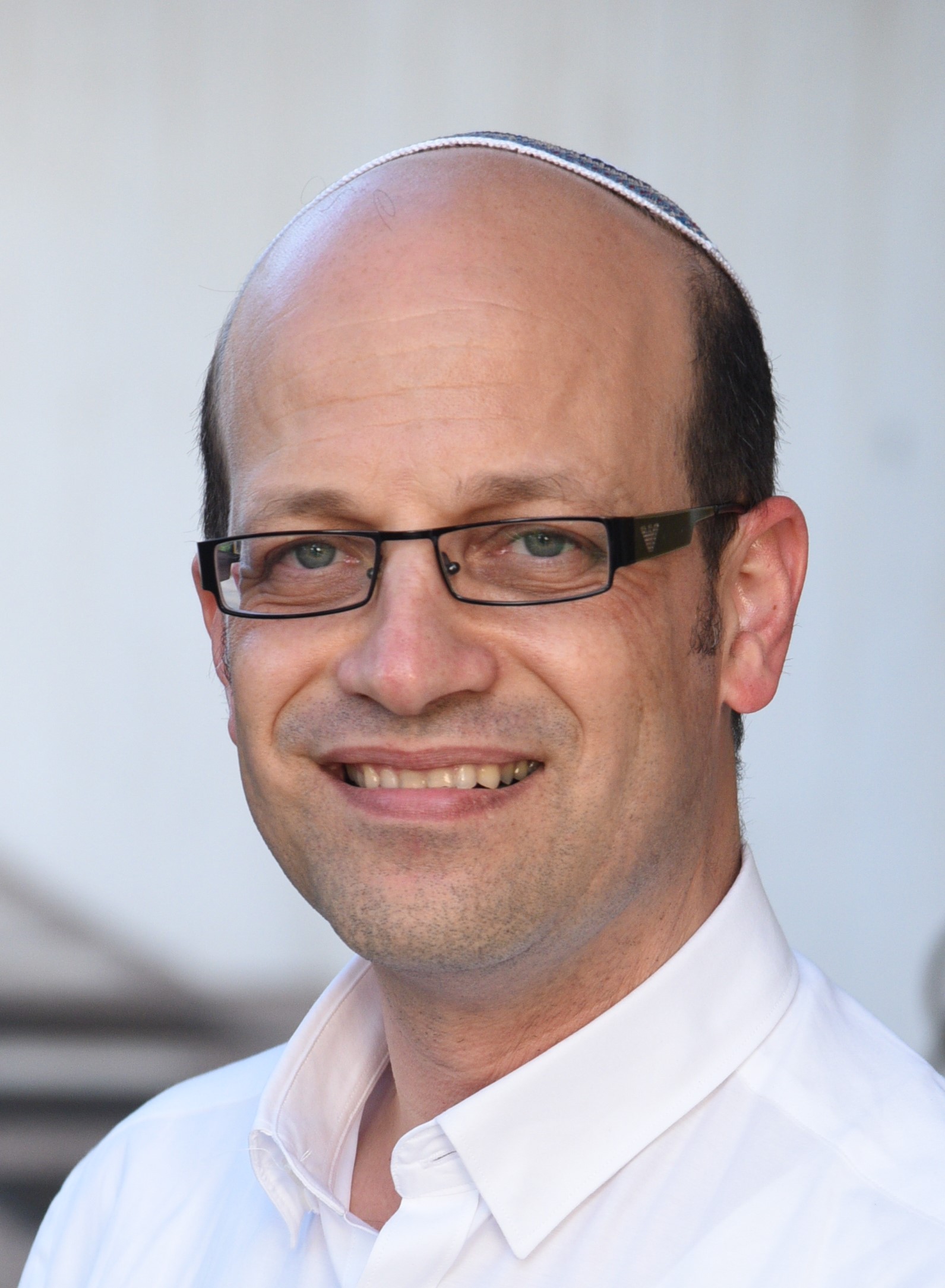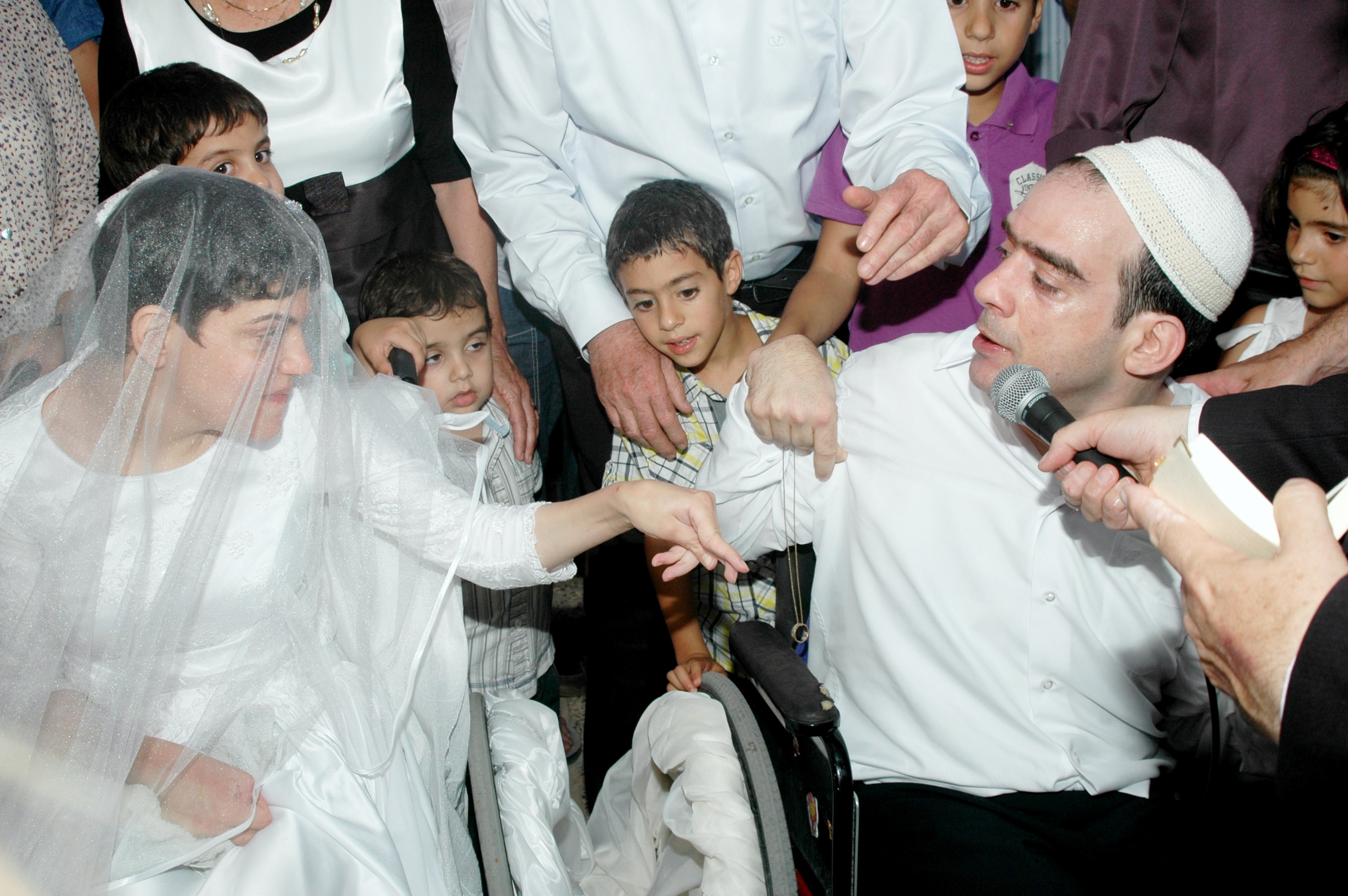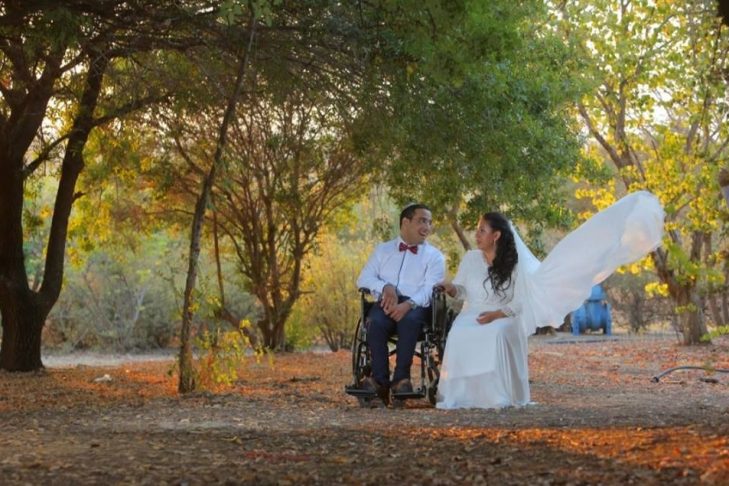Finding love is tough enough in the best circumstances. Doing so while grappling with a disability is even harder—and that’s where Inbar plays Cupid.
The Israeli nonprofit has developed what founders call a “social ecosystem” to help people with physical and developmental challenges create friendships, go on dates, fall in love and maybe even get married.
The organization conducts workshops at which they teach social skills: creating friendships, dating and engaging socially with others. They also train mentors—many of whom also have disabilities—to work one-on-one with Inbar participants as they try to build a social life.
Inbar also sticks with couples after they meet, running support groups for couples to help them navigate their unique challenges.

It started 15 years ago when founder Shalomi Eldar began giving shiurim classes (Torah lessons) at a friend’s home in Haifa. The friend was a therapist in a home for people with disabilities, and he invited Rabbi Shaul Inbar to the classes. Inbar suffers from cerebral palsy—“and has one of the brightest, sharpest minds I’ve ever encountered,” Eldar says. Eldar began giving shiurim. They grew close.
Inbar, then in his late 30s and confined to a wheelchair, confided a deep, abiding sense of loneliness. Despite his profession and his compassion, he didn’t think he could ever find love. He couldn’t feed himself. He couldn’t dress himself. How would he ever meet someone?
At first, Eldar tried to temper his friend’s expectations. Gradually, though, he came to realize that Inbar wasn’t alone—surely there were others like him, others who longed for the same sense of love and companionship but felt overwhelmed and trapped by their disability.
The pair decided to email their friends and contacts with an invitation to a singles dating event.
“This was pre-Facebook,” he laughs.
Early the next morning, Eldar’s phone began to ring. Thirty people from all over Israel attended the first meeting. From that initial event, “Inbar” was born. And Rabbi Inbar was the first person to get married through the organization—watch his wedding here!—and now he and his wife, Neta, have been married for six years and continue to participate in Inbar events.

Today, Inbar focuses on workshops, in addition to community and social events. The programming revolves around self-image, self-acceptance and identifying relationship goals. It’s now helmed by Shoshi Margolin, who participated in a relationship workshop with Rachel Kolette Wheeler. The workshop changed her life, so she brought Wheeler to Inbar to develop programs when she was appointed executive director.
“In the events, we empower people to believe that they are worthy and can be in a relationship,” Eldar says. “We held a couple of styling events, where we brought many stylists who did make-up, hair and dressed our female members and a male member. Photographers took professional pictures. One of the participants said it was the first time in her life she felt beautiful.”
Other times, workshops focus on the nitty-gritty of interpersonal communication.
“A personal mentor works with each participant on developing the ‘internal GPS’ and defining their individual path. Advice can be in sharpening the perspective on my own value, independence, priorities, [finding] the right partner, et cetera. We add to that ‘mini workshops,’ where we work on specific emotional and personal skills,” he says.
All mentors and instructors are trained in-house, and the workshops cost around $200. Social events are usually $15. Inbar staff assists with matchmaking, drawing from the pool of people who attend the workshops and social events, and who have relationships with Inbar mentors.
Today, 25 couples have been married through Inbar and hundreds of couples are dating.
“We try to tell people that they’re worthy. We don’t treat them as people who aren’t capable. Many of them are very capable, and we should treat them with respect,” Eldar says.



